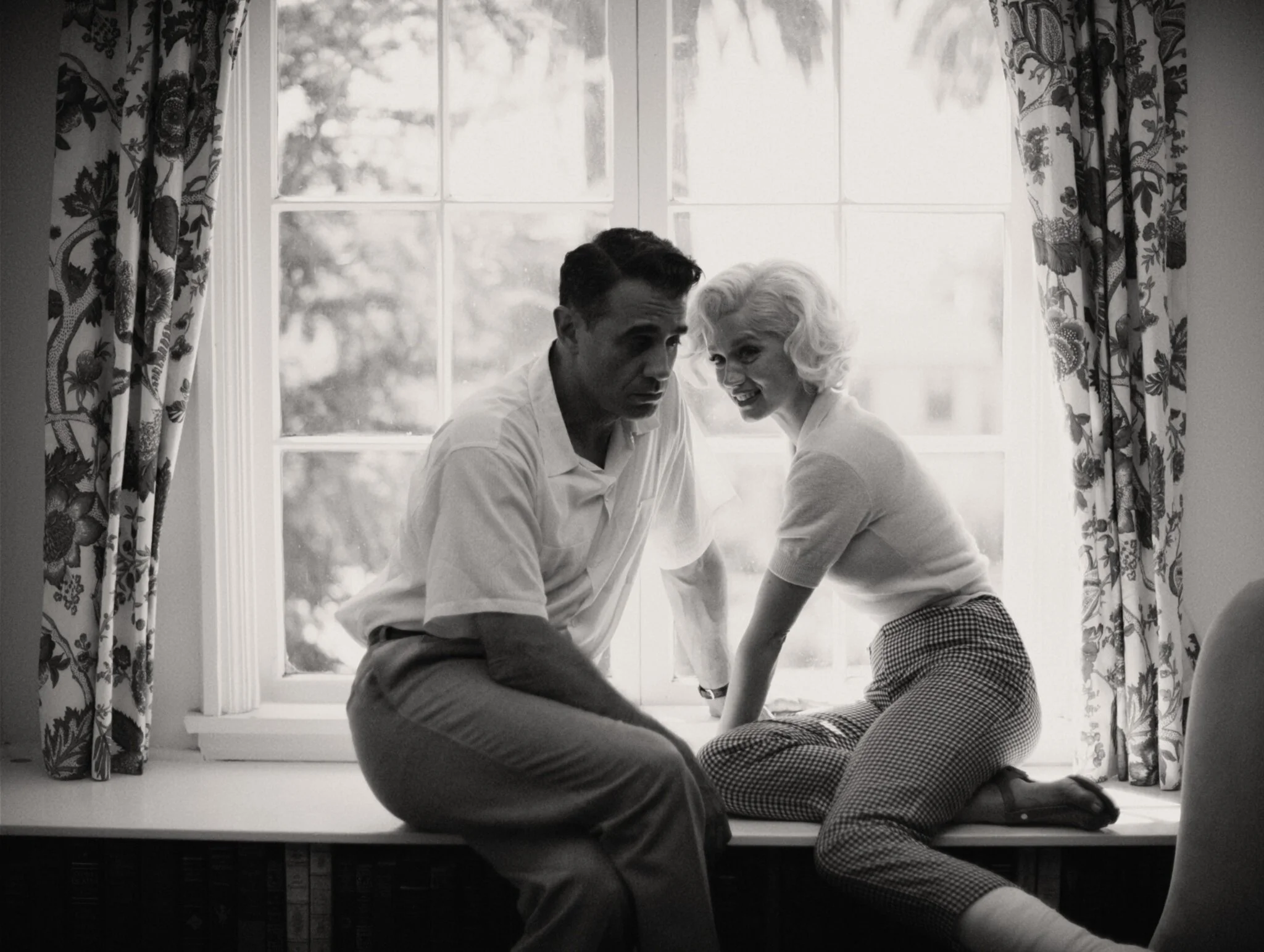Blonde (2022) Film Review and Summary
SOLID 2/10
Right from the start, Marilyn Monroe (Ana de Armas) is told to be a good girl. From helpless child to beloved superstar, this message is constantly conveyed to her by several intrinsic figures in her life. One would hope that director Andrew Dominik’s ambitious epic detailing the rise and fall of the icon would shed light on the aspects of her character that would support this lifelong goal. Unfortunately, just as her own internalized struggles do, this desired perception falls upon deaf ears throughout the film and disgusted eyes from the audience.
Andrew Dominik has always had a propensity to hyper-sensationalize. His feature debut, Chopper (2000), was a deranged character study of a vicious thug; following this was The Assassination of Jesse James (2007), a western epic; and then there was Killing Them Softly (2012), a crime-drama with superfluous stylization. All three of these films share the same conception as Blonde (2022), as they are all based on fictional retellings of history; all of which are interpreted to a varying degree of source content faithfulness. The plot composition of Blonde is dizzying in a bewildering manner of meticulous architecture, but its structure becomes dilapidated through Dominik’s interpretation of it.
The aforementioned rhetoric of proper behavior is distilled within Monroe during her early childhood by a despondent mom suffering from the emotional struggles of single-parenthood. The film begins with a preface of youthful trauma and subsequently transitions into her adolescence, where her need for a “daddy” is vocalized by the soundtrack. This blatant analogy presented itself as quite a shallow consolidation of the cards she was dealt as a young girl. Innocent juvenility is immediately shattered for Monroe when the film depicts her benign acceptance of a forced sexual transaction in exchange for a chance at stardom. For a film that seemingly proposes the goal of trying to clear Monroe’s reputation by posing it as the victim of constant oppression, it certainly submits Monroe, and De Armas, to the same fate. Moments like this elicit cringeworthy shuddering as a result of its crude and excessive nature in emphasizing clear points of concern. As mentioned before, Dominik’s implementation of the plot has a wonderful nonlinear arc to go off of, but the director somehow opts for an abbreviated compilation of Monroe’s lowlights. To pack as little character development as he did within the film’s extensive 166 minute runtime is incredibly shameful. This is only intensified by the fact that the broad biographical information of the blonde bombshell is reduced to revolving around three eras of romance.
Monroe’s love life begins with the polygamous threesome between Charlie Chaplin Jr. (Xavier Samuel), Edward G. Robinson Jr. (Evan Williams) and her. This period is defined by her newfound fame and the introduction of tabloid influence in her life. This culminates in an unplanned pregnancy that she is swiftly prompted to abort in a horrifyingly graphic moment, where we are plunged into her genitalia to distastefully embrace its point of view. Following this is Monroe’s short-lived marriage with Joe DiMaggio (Bobby Cannavale), the envious and physically abusive husband that develops from the hope of finally reaching pure intimacy. Finally, Arthur Miller (Adrien Brody) is much more tolerant of Monroe, but grows detached as the actress does the same. Blonde’s lack of subtlety is epitomized by Monroe’s tendency to call her partners her “daddy” as a superficial substitute to her obscure father. Monroe’s internalizations are further externalized through the emotional exploitation that the film transmits to De Armas in requesting her to cry, scream or mentally break down every other scene.
The utilization of moments of psychological instability do not effectively layer the idiosyncrasies of Monroe; instead, they diminish them. One audition early in the film offers a blunt parallelism to her troubled past by having Monroe act out a love-lost performance, in reference to her dad, that delivers little solace for her tumultuous upbringing. The humanity of Norma Baker becomes the caricature of Marilyn Monroe throughout Blonde, the same way it occurred in reality. Monroe’s persona is minimized to a feeble shell of what should be an image that bolsters the identity of a powerful and independent woman. Instead, confidence comes scarce, while self-consciousness is presented in a surplus. More than this though, the film feels like a continuation of Monroe’s ill treatment, now towards Ana de Armas. Just as Monroe underwent, De Armas is showcased through abundant nudity, defiling representation and a focal point of general sexuality. How is this film supposed to progress female representation when it indulges in the same lewd immoderation that it criticizes?
There were many creative decisions in Blonde that I could also genuinely not comprehend. More than any other aspect; the choice to CGI a 2001: A Space Odyssey-esque (1968) fetus as a moral compass that literally eats her up from inside was an incredibly trite piece of commentary. Another hilariously overdone inclusion was Monroe’s overuse of the title “daddy” that causes The Office’s Michael Scott and Jan Levinson’s use of “babe” to pale in comparison.
The duty of documenting the life of such a legendary figure of American cultural lore is a daunting task. The twisting narratives of this story that refuse chronology could have been rich and textured, but end up being watered down to transition into the next emphatic moment. Ana de Armas does her diligence in translating Dominik’s vision, but her constant breathiness and stunted delivery ultimately contribute to the distorted portrait of Monroe’s legacy. Brody actually appropriately executes the reserved, but silently elitist, personality of Miller, but only so much can compensate for Blonde’s shortcomings. Monroe’s cycle of pain and suffering is so sensationalized to the extent that the entire film becomes trivial as it progresses. Baz Luhrmann’s Elvis (2022) was another ode to an American luminary from this year, but while both efforts overstay their welcome, at least our experience with the King of Rock is fun.



